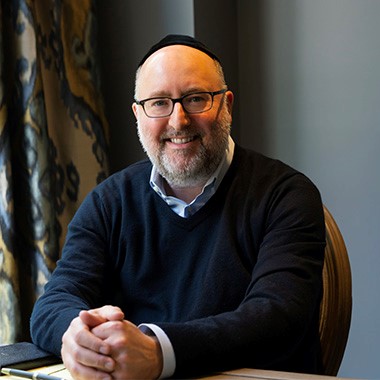The portion of Mishpatim deals with slaves and slavery; the kabbalists teach, however, that this is not talking about people who are physically enslaved. Rather, on the most basic level, being enslaved means caring what people think about us and doing things not because they are coming from our true essence, but because society, friends, family, and so forth, want or desire us to behave in that way. It may also mean we’re really doing things just to be liked, accepted, appreciated, or thought of as a good, sharing, spiritual person, even though they do have a positive side to them.
It’s important we understand this, because if we don’t know the disease, we can never gain the cure. Spiritually, the kabbalists teach there are two forces in this world. There is what we call the Light of the Creator, what Rav Ashlag refers to as ma’arechet hakedusha, the system of holiness; that is the place from which, cheirut,true freedom, comes. And then there is ma’arechet hatumah, the system of impurity, the system of darkness.
Each one of us, today, is enslaved. We care what people think, we care what people say, and we care how we are viewed. And that influences our lives, in almost every single action that we do. All of those thoughts mean that we are enslaved to them, because we are not able to be pure in our actions or act solely based upon what our true essence and soul desires. The kabbalists teach that as long as we’re in that state of caring what other people think, and acting in ways such that we will be appreciated or liked, and worrying about not being liked or appreciated, we are enslaved. We are not free.
Therefore, it is crucial we understand what it means to be spiritually enslaved. It is not just a state of imperfection. It is actually a connection to ma’arechet hatumah, to the forces of darkness, of negativity. When we speak about the Israelites in Egypt, which we often do, it’s not simply, as we know, the fact that they were in physical slavery, but that their consciousness was enslaved. And it means, again, not just a state of spiritual imperfection when you care what people think, but it actually means a connection to that force that is called the ma’arechet hatumah, the forces of impurity, the forces of darkness in this world.
Even those of us who have taken the time to think about this, these two sides in our lives - the side that pushes us to be truly free, and the side that pushes us to be enslaved - we understand them as one being more positive and one being not as positive. But, it is deeper than that; because to the degree that we are enslaved and caring about what other people say and think is to the degree we are tying ourselves to the forces of enslavement, which are the forces of darkness of this world. And as we push ourselves to become free of what people think and say, and really look inside, act, and live from that part of our soul that is pure, that is pushing to freedom, then we are disconnecting from those forces of what’s called the ma’arechet hatumah, the forces of impurity and darkness, and coming towards the ma’arechet hakedusha.
The most important thing to remember is that, first, we are all slaves. We have to be clear on this. And part of the gift of this Shabbat and this week is becoming free from that slavery… but it begins with this clarity. And we need to take the time and think about all the ways our lives are based upon anything but a pure desire of our soul, and everything that has to do with what people think, how we will be perceived, and how we are appreciated or not. All those thoughts, which are so prevalent in our mind daily, are an indication that we are still enslaved.
Being enslaved means something deeper than simply not being as spiritually evolved as we need to be; being enslaved is actually a connection, an attachment, which we create to the ma’arechet hatumah, to the forces of darkness of this world. And one of the great gifts of this Shabbat is being given the supernal assistance to break free from that slavery and to truly achieve freedom, cheirut.
